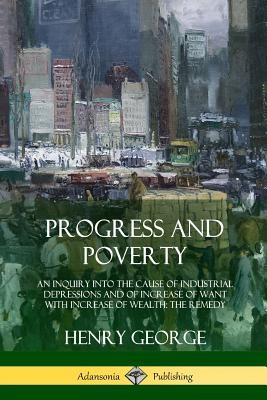
- We will send in 10–14 business days.
- Author: Henry George
- Publisher: Lulu.com
- ISBN-10: 1387997866
- ISBN-13: 9781387997862
- Format: 15.2 x 22.9 x 1.7 cm, minkšti viršeliai
- Language: English
- SAVE -10% with code: EXTRA
Reviews
Description
In Progress and Poverty, economist Henry George scrutinizes the connection between population growth and distribution of wealth in the economy of the late nineteenth century. The initial portions of the book are occupied with refuting the demographic theories of Thomas Malthus, who asserted that the vast abundance of goods generated by an economy's growth was spent on food. Consequently the population rises, keeping living standards low, poverty widespread, and starvation and disease common. Henry George had a different attitude: that poverty could be solved and economic progress preserved. To prove this, he draws upon decades of data which show that the increase in land prices restrains the amount of production on said land; business owners thus have less to pay their workers, with the result being mass poverty especially within cities.
EXTRA 10 % discount with code: EXTRA
The promotion ends in 21d.08:59:33
The discount code is valid when purchasing from 10 €. Discounts do not stack.
- Author: Henry George
- Publisher: Lulu.com
- ISBN-10: 1387997866
- ISBN-13: 9781387997862
- Format: 15.2 x 22.9 x 1.7 cm, minkšti viršeliai
- Language: English English
In Progress and Poverty, economist Henry George scrutinizes the connection between population growth and distribution of wealth in the economy of the late nineteenth century. The initial portions of the book are occupied with refuting the demographic theories of Thomas Malthus, who asserted that the vast abundance of goods generated by an economy's growth was spent on food. Consequently the population rises, keeping living standards low, poverty widespread, and starvation and disease common. Henry George had a different attitude: that poverty could be solved and economic progress preserved. To prove this, he draws upon decades of data which show that the increase in land prices restrains the amount of production on said land; business owners thus have less to pay their workers, with the result being mass poverty especially within cities.


Reviews